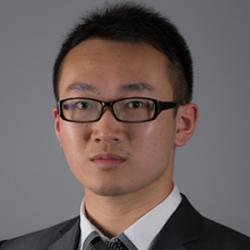
PhD (2018)
Le is a Lecturer in Statistics at CBE’s Research School of Finance, Actuarial Studies and Statistics. He completed his PhD in Statistics in 2018. His thesis focused on robust model selection and model averaging for high-dimensional data.
Le’s research relates to robust penalised regression and model averaging methods, with specific research interests including principal component analysis, clustering methods, spatio-temporal models, graphical lasso, mortality forecasting and other statistical applications to actuarial science. His work has been published in highly-regarded outlets including Technometrics, International Journal of Forecasting, Scandinavian Actuarial Journal and ASTIN Bulletin.
Here are Le’s responses to some questions that may interest you.
Why did you choose to work in academia rather than in industry?
I enjoy research and teaching. As an academic, you have a flexible working environment and more opportunities to explore your own research interests. With respect to teaching, I am always keen to create a dialogue with students; helping them discover answers for themselves gives me a great sense of satisfaction. I also enjoy the experience of working with students from different background and sharing my work and research with the students.
What surprised you when you commenced your academic career?
I found that completing a PhD was just a start of my research journey. Through discussions with colleagues and other scholars, I have come to realise there are still so many things that I need to learn. Before I became a lecturer, I always thought I fully understood the course material, but found that explaining the key concepts clearly and efficiently to students is much more difficult. I also realised that being an academic requires strong interpersonal and communication skills to coordinate with various stakeholders and to manage a large cohort of students.
How did you manage working from home last year?
As a result of COVID-19, lectures were moved online. To improve our students’ remote learning experience, I held live Zoom consultation sessions each week and involved more discussions through emails and course forums to provide them more feedback. My research is not heavily affected by COVID-19, except that some face-to-face meetings with colleagues switched to Zoom meetings. To effectively work from home, I set up a teaching and research plan at the beginning of each week; following a to-do list helps me achieve my goals with limited distractions.
Reflecting on your time as a PhD student, how did you work effectively with your supervisors?
Establishing a research and communication plan as well as arranging regular meetings with supervisors are important first-steps. Regular meetings helped me stick with my research plan and achieve my goals more efficiently. Before each meeting, I listed questions or interesting findings to discuss with my supervisors. During these meetings, I noted my supervisors’ feedback and upcoming research tasks. I also discussed any problems or difficulties. Overall, I believe open communication is the key to productively working with supervisors and maintaining good professional relationships.
